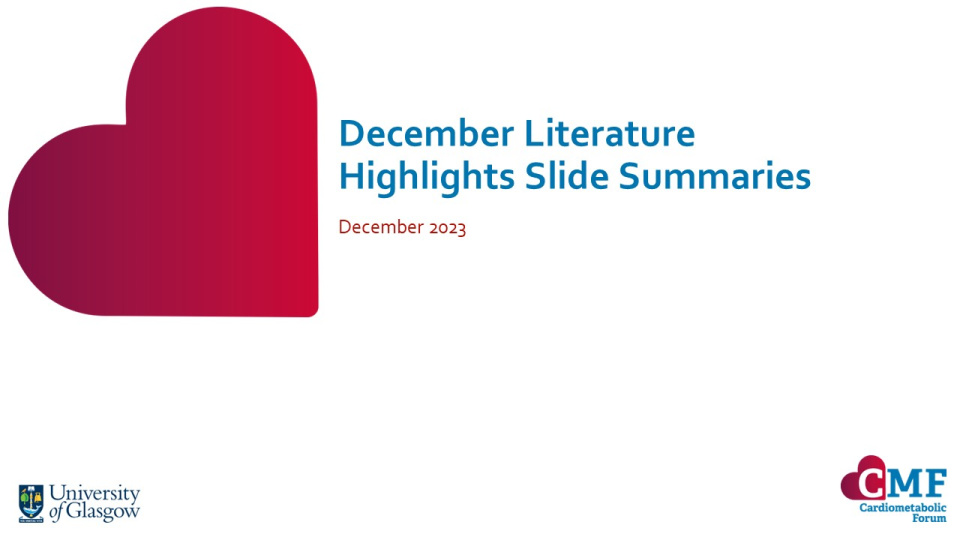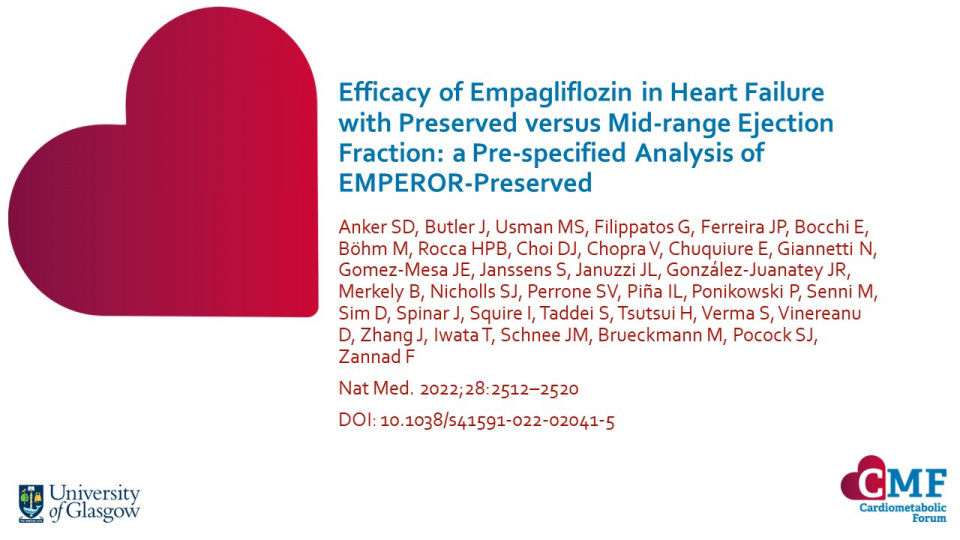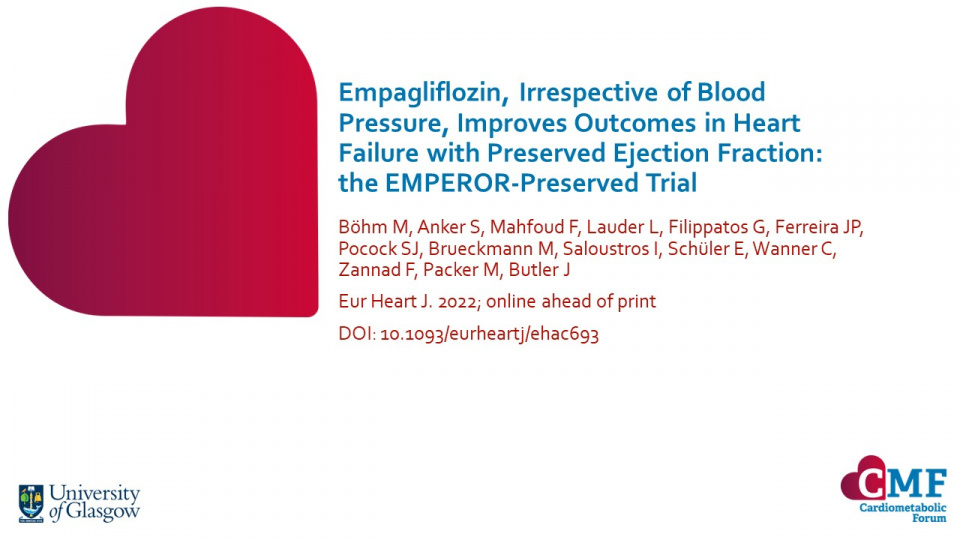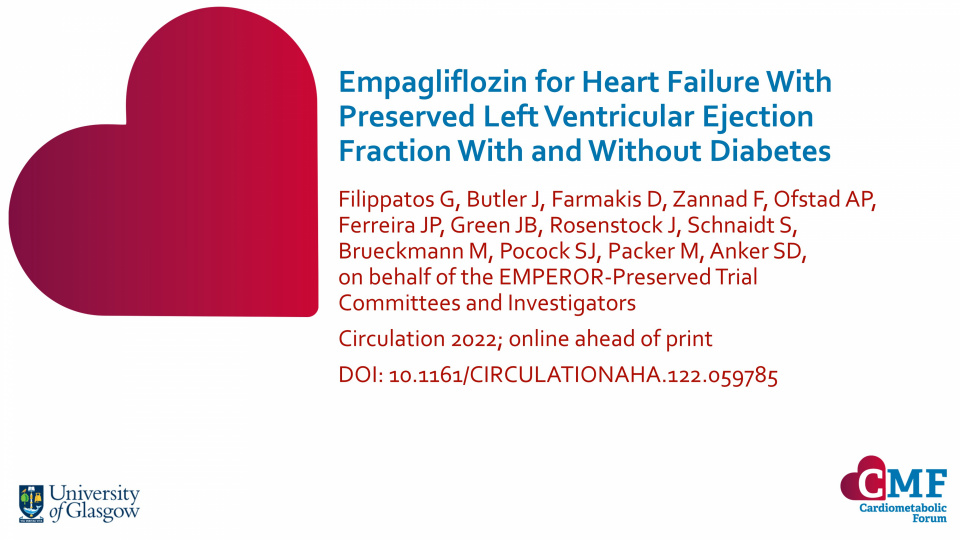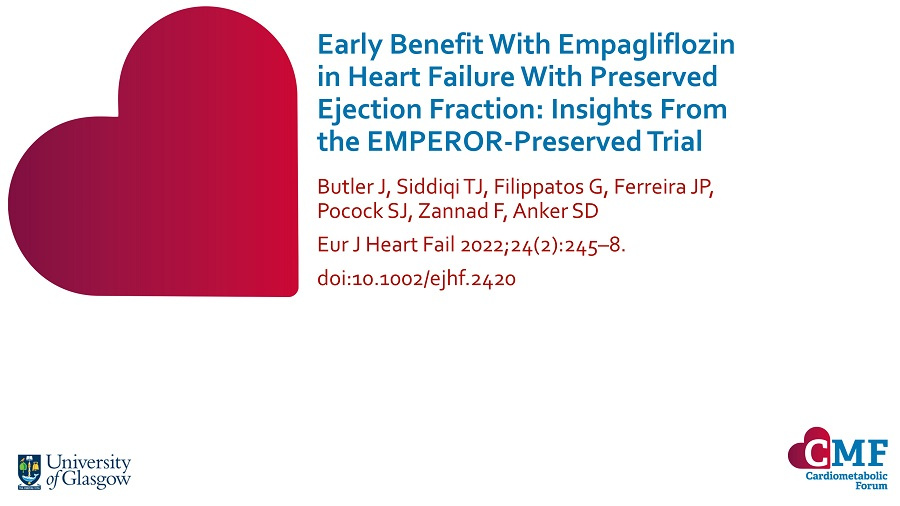Publications
Stay up to date with our literature reviews which are curated by experts to feature the most important publications released each month. Explore our publications for access to concise summary slides for your own use.
Efficacy of Empagliflozin in Heart Failure with Preserved versus Mid-range Ejection Fraction: a Pre-specified Analysis of EMPEROR-Preserved
Nat Med. 2022;28:2512–2520 DOI: 10.1038/s41591-022-02041-5
Results from EMPEROR-Preserved demonstrated that empagliflozin improved CV death and HF hospitalisation – the primary outcome – in patients with HF and LVEF >40%. This pre-specified analysis of EMPEROR-Preserved aimed to evaluate the effect of empagliflozin in patients with HFpEF (LVEF ≥50%) compared with patients who had HFmrEF (LVEF 41–49%).
Keywords:
Empagliflozin, Irrespective of Blood Pressure, Improves Outcomes in Heart Failure with Preserved Ejection Fraction: the EMPEROR-Preserved Trial
Eur Heart J. 2022; online ahead of print DOI: 10.1093/eurheartj/ehac693
Results from EMPEROR-Preserved demonstrated that empagliflozin improved CV and renal outcomes in patients with HFpEF, but its efficacy and safety with baseline SBP is not well established.
Keywords:
Empagliflozin for Heart Failure With Preserved Left Ventricular Ejection Fraction With and Without Diabetes
Circulation 2022; online ahead of print
In patients enrolled in EMPEROR-Preserved, empagliflozin significantly reduced the risk of heart failure (HF) outcomes irrespective of diabetes status.
Keywords:
Early Benefit With Empagliflozin in Heart Failure With Preserved Ejection Fraction: Insights From the EMPEROR-Preserved Trial
Eur J Heart Fail 2022;24(2):245–8. doi:10.1002/ejhf.2420
Results reinforce sustained clinical, health status and quality of life benefits with empagliflozin in patients with HF‑pEF, and underscore the need for timely initiation of therapy.

